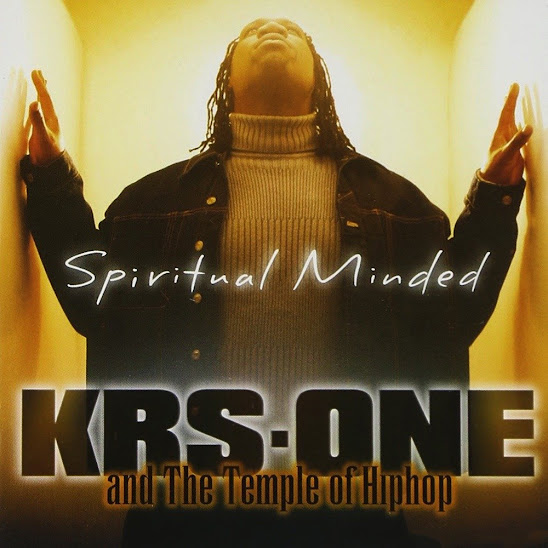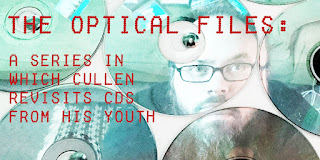Film, media and related arts - subjective contemplation and commentary with consideration of the intrinsic duality, interminable relevance and evolution of each. Exhibition of original and contributed film, art, music and writings.
Monday, February 28, 2022
The Optical Files #30: Marvin Gaye - Let's Get it On (1973)
Sunday, February 27, 2022
Bressonian Quote #28 - Notes from a Master Filmmaker
Saturday, February 26, 2022
The Optical Files #29: Rob Zombie - Educated Horses (2006)
Thursday, February 24, 2022
The Optical Files #28: Erykah Badu - Mama's Gun (2000)
In 2000, the high priestess of neo-soul followed up the Grammy-winning Baduizm with a more ambitious, conceptual & confident LP that I believe deserves as much (if not more) acclaim as her debut. Blame it on the singles ("Bag Lady" was big, but "On & On" & "Next Lifetime" were bigger), or speculate that the more overt feminist themes scared male listeners away, but back-to-back listens should make clear to everybody that there's no reason Mama's Gun should have underperformed by any measure compared to its predecessor.
I have the first pressing of Mama's Gun on Motown records. The track listing on the back & in the liner notes is incorrect, & there's even a song listed ("Props to the Lonely People") that isn't included on the album. The correct order is printed on the CD itself, along with the message "i changed the sequence at the last minute. peace, e. badu". The liner notes are full of such asides: "Didn't Cha Know" bears a note saying, "Peace my beloved people, check website for the rest of these lyrics--ain't finished yet." The album has only been reissued on CD once in the US, also by Motown in 2009, & the reissue kept this inconsistency. It's understandable--there's a casual charm to the little messages from Erykah, as if they are handwritten annotations from a friend in the margins. In the original pressing, I'm sure they really did run out of time to make their release date, but the warts & all presentation has the effect of an intimate, authentic experience. The fact that it's been made into an affectation on the reissue is, I'm sure, the label's fault & not Erykah's.
Mama's Gun opens with a statement of purpose to make a hard left from Baduizm in the form of "Penitentiary Philosophy," a song that's as far from the tone of its predecessor as possible while still being identifiable as the same artist. A more aggressive, almost rock-influenced arrangement with Questlove's pugnacious drums front & center in the mix. One of the key reasons for the sound of Mama's Gun is that Erykah was by now fully integrated into the Soulquarians crew. Soulquarians main man James Poyser & Questlove had their hands in Baduizm here & there, but on Mama's Gun Poyser has writing &/or producing credits on 8 of the album's 14 songs, & Quest plays on half the album. "My Life" is another early-album example of this musical combo's power: Poyser's prominent piano bangs out chunky chords while, instead of Quest's snappy drums, we get a drum machine programmed by none other than J Dilla (yes, that one, credited here as Jay Dee, who takes over the controls for the album's 2nd single "Didn't Cha Know?") Another intriguing element in "My Life" is the string arrangement by Larry Gold. Gold's strings also pop up later on in "Time's a Wastin'," where they come close to dominating the track with an atonal counterpoint to the jazzy main groove.
Pretty much all the songs on Mama's Gun are musical triumphs, not just for Erykah's cool yet emotive vocals, but also as examples of songwriting that is tricky & twisty while still remaining catchy. Sure, there are some verse-chorus-verse structures, but there's also stuff like "Kiss Me On My Neck," which has a huge bridge that enters halfway through & dominates the song from there on out, flipping the relationship between chorus & bridge. Then there's the Stephen Marley collaboration "In Love With You," recorded in Jamaica, a roots reggae feel with a sparse arrangement: just layered guitars & bass played by Dready--no drums, no skanking, still 100% reggae.
The lyrics on Baduizm were fine & all, but here Erykah digs deep into introspective, autobiographical, & sociopolitical terrain, a lot of it at the intersection of society's policing of women's bodies. "Cleva" is a body-positive women empowerment song over Latin percussion & vibraphone played by the legendary Roy Ayers. "Booty" is an ahead-of-its-time song about rejecting the idea that other women are her competition, promising another woman that she won't allow her man to cheat with her: "I don't want him 'cause of what he doin' to you/& you don't need him cause he ain't ready [...] I hope you would've done the same thing for me too."
Erykah herself plays acoustic guitar on "A.D. 2000," a collaboration with Betty Wright that was written in the aftermath of Amadou Diallo's murder at the hands of 4 NYPD officers. The sentiment--the futility of lip-service monuments & memorials to the dead in the absence of any substantive change--could have easily been written in 2020.
Mama's Gun closes with "Green Eyes," a 10-minute multi-part suite that sums up everything the album wants to do. It starts with a degraded, Billie Holiday-esque jazz sound that recalls Baduizm's "Afro (Freestyle Skit)" in its homage to bygone eras of Black music. It then explodes into a showcase for Roy Hargrove's burly horn arrangement (last heard in "Booty") & ends with the lyric "y'all just listen" repeated who knows how many times. Both tracklists (the one on the booklet & the one on the CD) end with this song, so it's clear Erykah knew this is how she wanted to close. A psychologically dense epic of ambitious songwriting & impeccable musicianship. Whether that last sentence describes "Green Eyes," the whole album, or both is open to your interpretation.
Tuesday, February 22, 2022
The Optical Files #27: Public Enemy - Fear of a Black Planet (1990)
Monday, February 21, 2022
150 Films/150 Days #03: Films 11-18
The Comprised List is over 150 films deep with integral films missed from the past 10 years and beyond, as well as a few just for popcorn giggles.
I'll be making regular posts of 5-10 films at a time, including my screening notes, random and unedited. Each film will be listed with the release date, relevant creative contributors, the means of screening, and a written response.
Sunday, February 20, 2022
The Optical Files #26: Heavy D. & the Boyz - Big Tyme (1989)
Saturday, February 19, 2022
Nightmare Alley - Featured Film of Interest - Highly Recommended
Nightmare Alley is fantastic filmmaking, fantastic film viewing, and visually spectacular. Guillermo del Toro does film noir with a carnival backdrop, and it's everything you would ever hope. He utilizes his seemingly hand picked cast to exhilarating levels with performances that match the elite storytelling and visual style. Guillermo and his special brand of magical realism at its finest. Any questions?
Friday, February 18, 2022
The Optical Files #25: KRS-One - Spiritual Minded (2002)
Wednesday, February 16, 2022
The Optical Files #24: Geto Boys - The Geto Boys (1990)
After I wrote about their 2005 album The Foundation last week, the universe must have known I was in the mood for some more Geto Boys, so the random number generator blessed me with an opportunity to revisit their 1990 self-titled album. Most people, including me, think of this as the Geto Boys' debut LP, but really it's more of a rerecorded compilation. There are only 2 wholly new songs ("Fuck Em" & "City Under Siege"). Most of the tracks are rerecorded, rearranged songs from their 2nd album Grip It! On That Other Level. One of the most controversial songs, "Assassins," is re-recorded from Making Trouble, the 1988 debut album by a group called The Ghetto Boys, where it was written & rapped by a completely different person (Prince Johnny C).
Monday, February 14, 2022
The Optical Files #23: Outkast - ATLiens (1996)
Sunday, February 13, 2022
150 Films/150 Days #02: Films 6-10
The Comprised List is over 150 films deep with integral films missed from the past 10 years and beyond, as well as a few just for popcorn giggles.
I'll be making regular posts of 5-10 films at a time, including my screening notes, random and unedited. Each film will be listed with the release date, relevant creative contributors, the means of screening, and a written response.
Saturday, February 12, 2022
The Optical Files #22: Geto Boys - The Foundation (2005)
Friday, February 11, 2022
Bressonian Quote #27 - Notes from a Master Filmmaker
Thursday, February 10, 2022
The Optical Files #21: KRS-One - Keep Right (2004)
Tuesday, February 8, 2022
The Optical Files #20: The Beatles - Please Please Me (1963)
Monday, February 7, 2022
150 Films/150 Days #01: The First 5 Films
To open the new year, I began this series, 150 Films/150 Days, as a means of returning to my screening habits of old. Click the link to read the Series Introduction. The general idea is to return to my film school roots of obsessively watching all the films from all the places all the time.
The Comprised List is over 150 films deep with integral films missed from the past 10 years and beyond, as well as a few just for popcorn giggles.
I'll be making regular posts of 5-10 films at a time, including my screening notes, random and unedited. Each film will be listed with the release date, relevant creative contributors, the means of screening, and a written response.
2. The Matrix Resurrections (2021): Watched on HB0 - simultaneous theatrical release, 02/02. Directed by Lana Wachowski, Performances by Keanu Reeves and Carrie-Anne Moss.


























